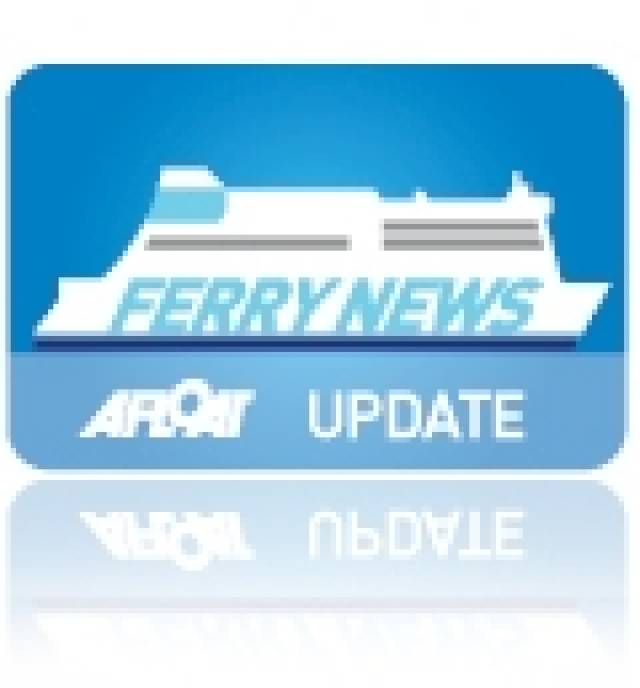#LNGferryOnHold - Brittany Ferries have been forced to suspend plans to upgrade much of its fleet which according to Ships Monthly were to operate on Liquefied Natural Gas and also put on hold construction of an LNG-powered 'Pegasis Project' cruise ferry.
As previously reported on Afloat.ie, the giant 52,000 tonnes LPG powered ferry proposed for the Cork-Roscoff seasonal route in 2017 was also to serve primarily Bay of Biscay services from Portsmouth and Plymouth to Santander in Spain.
Plans to comply with new emissions rules from 2015 included the installation of scrubbers on three ships and the conversion to allow three newer vessels to operate on LNG. The process started on 18 October, when Normandie arrived in Santander for installation of scrubbers.
Work was to start on the €270 million LPG 'Pegasis' – Power Efficient Gas Innovative Ship – at STX Saint Nazaire in 2015, with delivery of the 52,000gt vessel in 2017, but the yard was struggling to fit the ferry into its sequence of cruise ship orders.
To read the full Ships Monthly report, also click HERE.
The Bretagne operated end of season Cork Roscoff sailings just over a month ago and the 14 hour routes usual cruiseferry Pont-Aven is scheduled to reopen services in March 2015.


























































